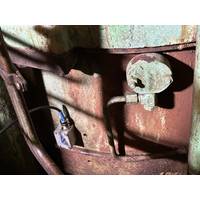
New Product: Cylinder Scuffing Detection Tool
Ships trials reportedly confirmed that CM Technologies’ new scuffing sensor can detect early onset cylinder wear in marine diesel engines. Trials onboard a number of large containerships and a two-stroke engine Baltic ferry showed it was possible to measure the friction in the cylinder when the engine is running.CMT noted a trend in cylinder liner scuffing following the widespread use of 0-0.50% low sulphur fuel (LSF). These fuels together with insufficient or over lubrication…
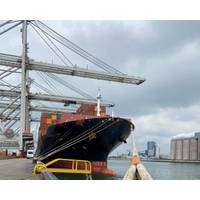
Chevron Completes Testing of New Marine Cylinder Oil meeting MAN ES’ Category II Spec
Chevron Marine Lubricants’ new Taro Ultra Advanced 40 has passed the Main NOL (No Objection Letter) Service and Confirmation field tests by MAN Energy Solutions, which allows the oil’s uninterrupted use in its Mk 9 and later engines.Since the International Maritime organization (IMO) 0.5% sulphur cap came into effect on 1 January 2020, the engine designer has defined two performance standards for lube oils intended for use in their two-stroke engines. To deal with changing fuel variants and engine designs…
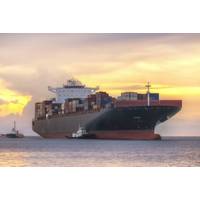
Shell Marine Receives NOL from MAN ES for Shell Alexia 40 XC
Shell Marine received a full No Objection Letter (NOL) from MAN Energy Solutions (MAN ES) for Shell Alexia 40 XC, its Category II (CAT II) 40BN cylinder oil, confirming the successful completion of the full approval process.Alexia 40 XC uses a proprietary and unique formulation, developed by Shell Marine’s in-house Research & Development team. The NOL was received following the conclusion of the Main NOL Service Test and Confirmation Test for Alexia 40XC. The successful approval…
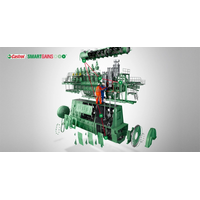
Marine Lubricant Choice 'More Critical than Ever'
The technological evolution of new marine fuels and engines places increased demands on cylinder oils, says lubricants supplier Castrol.More efficient engines, new and varied fuels, and recent changes to leading OEM cylinder oil strategies are making lubricant choice a more important and complex decision.Castrol’s survey of marine owners, operators and managers, earlier this year, revealed that 30% of those surveyed had undertaken no or limited planning to prepare for new fuels.When the dynamic between engine…
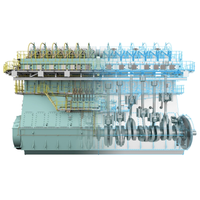
WinGD Publishes Cylinder Lube Guide
Engine designer WinGD (Winterthur Gas & Diesel) has published a cylinder lubrication guide to provide ship operators with consolidated, at-a-glance information highlighting the specific usage conditions for each and every approved cylinder oil.The guidance is the result of several months’ work with major oil companies to make usage requirements more transparent. Previously, the guidelines for each oil were found only in the industry standard No Objection Letters (NOL) issued by WinGD to oil companies, and available only upon request by a customer to an oil company directly.
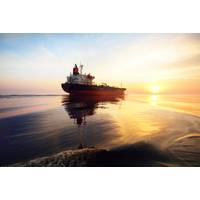
ExxonMobil Debuts New Multi-fuel Marine Cylinder Oil
ExxonMobil is introducing the latest addition to its MobilGard cylinder oil range, Mobilgard 540 X, specifically formulated for use with both 0.10% and 0.50% sulphur fuels and liquefied natural gas (LNG). Mobilgard 540 X is designed to meet the advanced cleanliness and protection needs of newer engine designs and meets WinGD’s requirements for all three fuel types.According to the manufacturer, Mobilgard 540 X has passed extensive fit-for-use testing on the most recent engine…

Lubrizol Joins Shipping’s Zero Emissions Ambition
The Lubrizol Corporation says it has become the first lubricant additive technology supplier to join an international coalition aiming to drive the development of commercially viable, zero-emissions deep-sea ships by 2030.A partnership between the Global Maritime Forum, the World Economic Forum and Friends of Ocean Action, the Getting to Zero Coalition is currently endorsed by 14 governments and is composed of more than 100 organizations, including ship owners, ports, technology…
ExxonMobil Talks With Teekay Ahead of IMO 2020
The International Maritime Organization (IMO) has mandated a global 0.50% cap on the maximum level of sulphur in marine fuel. This new cap represents a significant reduction – down from the current 3.50% limit – and presents the marine industry with compliance challenges.Starting from January 1, 2020, vessel operators will need to use a compliant fuel, or have a scrubber fitted if they wish to continue burning high-sulphur fuel oil. This ruling does not affect Emission Control Areas (ECAs)…
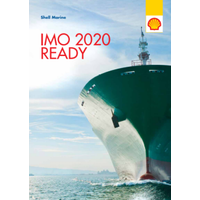
Shell Publishes White Paper for IMO 2020 Preparedness
Shell Marine has published a new White Paper that offers ship owners and operators the critical guidance they need on cylinder oils and engine care to transition successfully through the IMO global cap on fuel sulphur content from January 1, 2020.‘IMO 2020 Ready’ from Shell Marine sets out the commercial, operational and technical challenges faced by customers before, during and after the regulatory deadline. The publication gives in-depth guidance on the cylinder oils best suited…
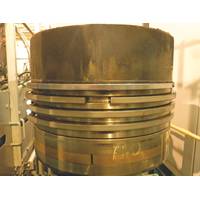
Cylinder Oil Prevents Detergency Deposit Build-Up
LUKOIL Marine Lubricants, subsidiary of Russian in oil exploration, production and refining company LUKOIL, has highlighted the advantages of using LUKOIL NAVIGO MCL Extra, a new 40 BN cylinder oil designed to prevent deposit build-up due to the extra detergency associated with ‘2020 fuels’. At a recent technical seminar, Stefan Claussen, Technical and Marketing Director of LUKOIL Marine, described how the company is introducing future lubrication solutions for very-low- (VLSFO…
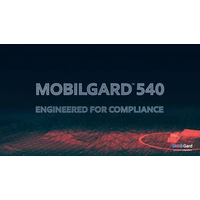
ExxonMobil's Mobilgard 540 Cylinder Oil Available
ExxonMobil has announced its new 40BN cylinder oil, Mobilgard 540, will be available from September 2, 2019. The lubricant has been specifically formulated for use with 0.50% sulphur fuels that comply with the International Maritime Organization’s (IMO) 2020 emission regulations and meets the requirements of OEMs, MAN ES and WinGD.Mobilgard 540 will be available from launch in major ports around the world including Hong Kong, Singapore, Antwerp, Rotterdam and Amsterdam. It will also be offered at additional locations through ExxonMobil’s delivery network, in bulk and in packs.
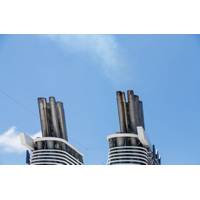
ExxonMobil Introduces 0.50 PCT Marine Fuels
Engineered Marine Fuels formulated to not only comply, but also perform, ahead of 2020 sulphur cap.EMF.5 fuels range ensures compliance without compromising on quality and performanceThe fuels have passed stringent fit-for-use assessmentsCombined fuels and lubricants offer can help customers reduce operating costsExxonMobil has introduced EMF.5, its range of Engineered Marine Fuels developed ahead of the International Maritime Organization’s (IMO) global 0.50 percent sulphur cap.
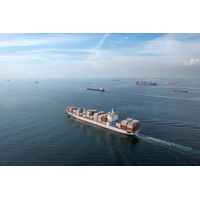
ExxonMobil Launches MobilgardT 540 Cylinder Oil
ExxonMobil has developed a newly formulated 40BN cylinder oil, Mobilgard 540. It is specifically designed to work with the low-sulphur fuels the vast majority of the marine industry are expected to adopt for compliance with the International Maritime Organization’s (IMO) 0.50 per cent sulphur cap. The regulation comes into force January 1, 2020.Mobilgard 540 will be available from the first quarter of 2019 and is compatible at any volume with ExxonMobil’s current cylinder oil offer.

Marine Low Sulphur Fuel: Organizing the Switch
The International Maritime Organization’s (IMO) decision to implement a 0.50 percent cap on sulphur emissions has created uncertainty among vessel operators. Questions are already being asked about how to comply with the changing emissions target, what types of fuels will be available and where. However, ensuring compliance isn’t just about fuel selection; the actual switchover process from heavy fuel oil (HFO) to new, low-sulphur alternatives needs careful management. There are…

Shell Marine Discusses Engine Protection Beyond 2020
Marine lubricant choices to address International Maritime Organization (IMO) restrictions on the fuels used by ships from 2020 must be based on verifiable cylinder oil performance data and engine testing to cover all operating conditions, according to the new General Manager of Shell Marine, Joris Van Brussel.Based in Singapore, Joris has gained experience across Shell’s fuels, lubricants and renewables businesses worldwide, with roles in licensing, branding and retail activities…
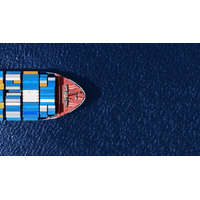
MAN Okays Chevron's Taro Cylinder Lubricants
Following field testing, Chevron Marine Lubricants have been issued with two NOLs (No Objection Letters) from equipment manufacturer MAN Energy Solutions, for the use of three of its Taro cylinder oils with itscylinder oil mixing system, ACOM.“Receiving the NOLS from Man Energy Solutions (formerly MAN Diesel & Turbo), demonstrates the impressive performance of our products in the field. The Taro range of cylinder lubricants provides solutions for the varied range of engines, different fuels and the increasingly complex operating requirements that we are faced with.
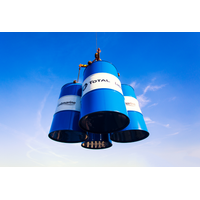
MAN Okays Total Lubmarine's New Products
Global marine lubricant provider Total Lubmarine has received two No Objection Letters (NOL) from equipment manufacturer MAN Diesel & Turbo – in recognition of the effectiveness of two of its products.The first NOL recognises the performance of cylinder oils TALUSIA HR 140, and approves it for use in MAN engines. TALUSIA HR 140 – which has a higher BN (base number) than most of its market counterparts – offers the best solution for engines subject to severe corrosive. Designed for slow speed engines running on High Sulfur Fuel Oil (HSFO)…
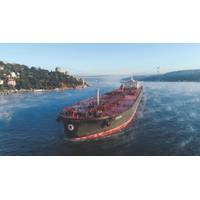
Fuels, Lubricants & Green Marine
International Maritime Organization (IMO) fuel rules entering force in 2020 mandate a drastic sulfur reduction. By 2050 the mandate is to cut greenhouse gas emissions of shipping by at least 50 percent.Marine fuels, lubricants and additives manufacturers play their part in establishing maritime’s green credentials by introducing new environmentally acceptable technologies and products.The shipping industry is more than ever portrayed in a bad light due to increasing awareness of its contribution to global climate change, according to Dirk Kronmeijer, CEO of GoodFuels Marine.

